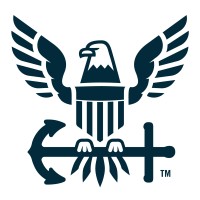
Brian Bowles
Collateral Damage Control Firefighter at US Navy- Claim this Profile
Click to upgrade to our gold package
for the full feature experience.
Topline Score


Bio


Experience
-
US Navy
-
United States
-
Armed Forces
-
700 & Above Employee
-
Collateral Damage Control Firefighter
-
Feb 2007 - Present
When I joined the United States Navy I did not know what to really expect other than being on a ship and traveling all around the world. My journey in firefighting started in Boot Camp at Great Lakes Naval Training Center. There I had my first experience wearing firefighting gear, fighting fires, saving wounded personnel from hazards, and administering first aid. I had to think quickly and clearly to achieve the mission which was to save the ship and as many lives that I possibly could. I continued in additional training in fire fighting and saving lives in Pensacola, Fl. at the Naval Air Technical Training Center for 6 weeks. During this time I trained in two different forms of fire fighting. First was to combat aircraft fires on the flight deck and then on the airfield. I would assess the situation, follow procedures and protocols in accordance with the Naval Ships Technical Manual, Chapter 555 Surface Ship Firefighting, Naval Air Training and Operating Procedures Standardization and Navy Safety and Occupational Health Manual. I learned more about indirect firefighting and of how to clear an aircraft safely in order to save the pilot that was trapped in the aircraft. The duties of successfully completing these high-risk courses was familiarizing myself with basic chemistry of fire, applying fire fighting principles, performing the duties and leading fire parties and extinguishing large Class Bravo fires. Show less
-
-
FireFighter Damage Control Petty Officer
-
Jan 2007 - Present
As an Damage Control Petty Officer onboard the USS Enterprise and the USS Gerald R. Ford educational courses and training continued. Shipboard Firefighting helped me comprehend and apply fire fighting principles, rules, and concepts with live fires using fire fighting equipment. This course was a level III of shipboard Survivability Training Level Requirement. Advance Shipboard Firefighting was a classroom instruction as well as hands-on live scenarios with different firefight tactics and procedures designed to understand the roles and responsibilities as a Repair Locker Leader, On-Scene Leader, Investigator, Team Leader, Nozzleman, Hoseman, Plugman and Plotter. This course was also a level III of shipboard Survivability Training Level Requirement. Repair Party Leader was where I was tested to be able to perform tasks associated with shipboard casualty and repairs and be able to provide knowledgeable leadership to a group of sailors involved in shipboard casualty repairs. All of the collective 15 weeks of training from boot camp to my designation school as an Aviation Boatswain's Mate and additional schools while serving in the military for 15 years has prepared me for all the necessary skills to be disciplined, dependable, make sound and timely decisions, understand and accomplish task, cultivate abilities to meet a variety of challenges, take responsibility for self and actions, and set the example to train and lead others. Show less
-
-
Education
-
2017 - 2018

Regent University
Bachelor of Science - BS, Divinity/Ministry -
2007 - 2011

Central Texas College
General Studies, 3.6 -
2022 -

ECPI University
Associate of Science - AS, Emergency Medical Technology/Technician (EMT Paramedic)
Community







